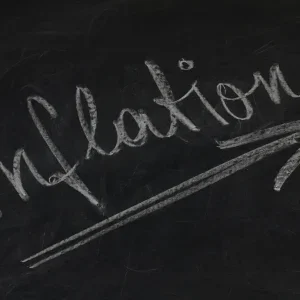
The global hotel industry is a crucial component of the travel and tourism sector, significantly contributing to economic growth, employment, and cultural exchange. However, economic downturns pose severe challenges to this industry, affecting occupancy rates, revenue, and overall profitability. This article delves into the impacts of economic downturns on the hotel industry and explores strategies that can help hoteliers mitigate these adverse effects.
Impact of Economic Downturn on the Hotel Industry
Decreased Occupancy Rates
One of the most immediate impacts of an economic downturn on the hotel industry is a decrease in occupancy rates. When the economy is struggling, both leisure and business travel decline. Companies cut back on travel expenses, and consumers reduce discretionary spending, including holidays and leisure trips. This reduction in demand leads to lower occupancy rates, directly affecting the revenue of hotels.
Reduced Average Daily Rate (ADR)
In response to declining demand, hotels often reduce their Average Daily Rate (ADR) to attract guests. While this strategy might help in maintaining occupancy levels, it typically results in lower revenue per available room (RevPAR). During an economic downturn, maintaining a balance between competitive pricing and profitability becomes a challenging task for hoteliers.
Increased Competition
Economic downturns often lead to intensified competition among hotels. To capture a limited pool of travellers, hotels may engage in price wars, offer additional perks, or invest in marketing campaigns. This heightened competition can strain financial resources, making it crucial for hotels to differentiate themselves without excessively compromising on rates.
Operational Cost Management
Managing operational costs becomes paramount during economic downturns. Hoteliers need to find ways to optimise their operations to maintain profitability. This often involves renegotiating contracts with suppliers, implementing energy-saving measures, and streamlining staff roles. Effective cost management can help hotels survive periods of reduced revenue.
Strategies for Mitigating the Impact of Economic Downturns
Diversifying Revenue Streams
Diversification is a key strategy for mitigating the impact of economic downturns. Hotels can explore additional revenue streams such as hosting events, offering co-working spaces, and developing loyalty programmes. By diversifying their services, hotels can attract different customer segments and reduce reliance on room bookings alone.
Enhancing Customer Experience
Focusing on enhancing the customer experience can help hotels retain guests and attract new ones, even during tough economic times. Personalised services, superior customer care, and unique offerings can set a hotel apart from its competitors. Investing in technology to streamline check-ins, personalise marketing efforts, and gather guest feedback can significantly improve the overall guest experience.
Strategic Marketing
Effective marketing strategies are essential during economic downturns. Hotels should leverage digital marketing channels to reach potential customers cost-effectively. Targeted campaigns, social media engagement, and search engine optimisation (SEO) can help attract both leisure and business travellers. Highlighting unique selling points and value-added services can make a hotel more appealing in a competitive market.
Flexible Pricing Strategies
Adopting flexible pricing strategies can help hotels manage occupancy and revenue. Dynamic pricing, which adjusts rates based on demand, can maximise revenue. Additionally, offering bundled packages, early bird discounts, and extended stay deals can attract price-sensitive travellers without drastically reducing ADR.
Leveraging Technology
Technology plays a crucial role in helping hotels navigate economic downturns. Property management systems (PMS) can optimise operations, reduce costs, and improve guest satisfaction. Revenue management software can help in adjusting pricing strategies based on real-time data. Moreover, online booking platforms and mobile apps can enhance the booking experience and increase direct bookings, reducing reliance on third-party platforms.
Case Studies: Hotels Successfully Navigating Economic Downturns
Marriott International
During the economic downturn caused by the COVID-19 pandemic, Marriott International implemented several strategies to mitigate its impact. The company focused on enhancing its loyalty programme, Marriott Bonvoy, to retain customers. Additionally, Marriott leveraged technology to improve the guest experience and streamline operations. By adopting flexible cancellation policies and promoting local staycations, Marriott managed to sustain occupancy levels during challenging times.
Hilton Worldwide
Hilton Worldwide adopted a strategic approach to navigate the economic downturn by focusing on its Hilton Honors loyalty programme and enhancing direct bookings through its website. The company also emphasised cleanliness and safety protocols, which became critical during the pandemic. By addressing customer concerns and promoting flexible booking options, Hilton maintained a competitive edge.
The Role of Government and Industry Associations
Government Support
Government support can play a vital role in helping the hotel industry during economic downturns. Financial aid packages, tax relief measures, and subsidies can provide much-needed liquidity to struggling hotels. Additionally, governments can promote domestic tourism to stimulate demand.
Industry Associations
Industry associations such as the British Hospitality Association (BHA) and the American Hotel & Lodging Association (AHLA) can offer support through advocacy, training programmes, and industry research. These associations can provide valuable insights and resources to help hotels navigate economic challenges effectively.
Future Outlook: Preparing for the Next Economic Downturn
Building Resilience
Building resilience is essential for the hotel industry to withstand future economic downturns. This involves investing in employee training, adopting sustainable practices, and maintaining financial reserves. A resilient hotel can adapt to changing market conditions and emerge stronger from economic challenges.
Sustainability and Innovation
Sustainability and innovation will play crucial roles in the future of the hotel industry. Implementing eco-friendly practices can attract environmentally conscious travellers and reduce operational costs. Additionally, embracing innovation in service delivery, guest engagement, and marketing can provide a competitive advantage.
Long-Term Planning
Long-term planning is vital for preparing for economic downturns. Hotels should conduct regular financial reviews, assess market trends, and develop contingency plans. By anticipating potential challenges and proactively addressing them, hotels can ensure long-term stability and growth.
Conclusion
Economic downturns present significant challenges to the hotel industry, but with strategic planning and adaptability, hotels can navigate these tough times successfully. Diversifying revenue streams, enhancing customer experience, leveraging technology, and adopting flexible pricing strategies are crucial steps. Learning from successful case studies and building resilience through sustainable and innovative practices will prepare the industry for future downturns. With government support and the guidance of industry associations, the hotel sector can emerge stronger and more resilient from economic adversities.






